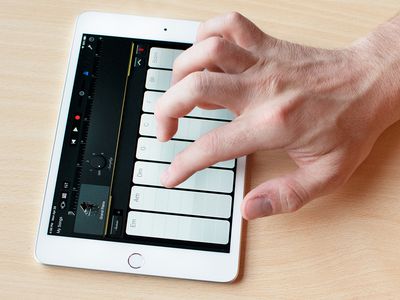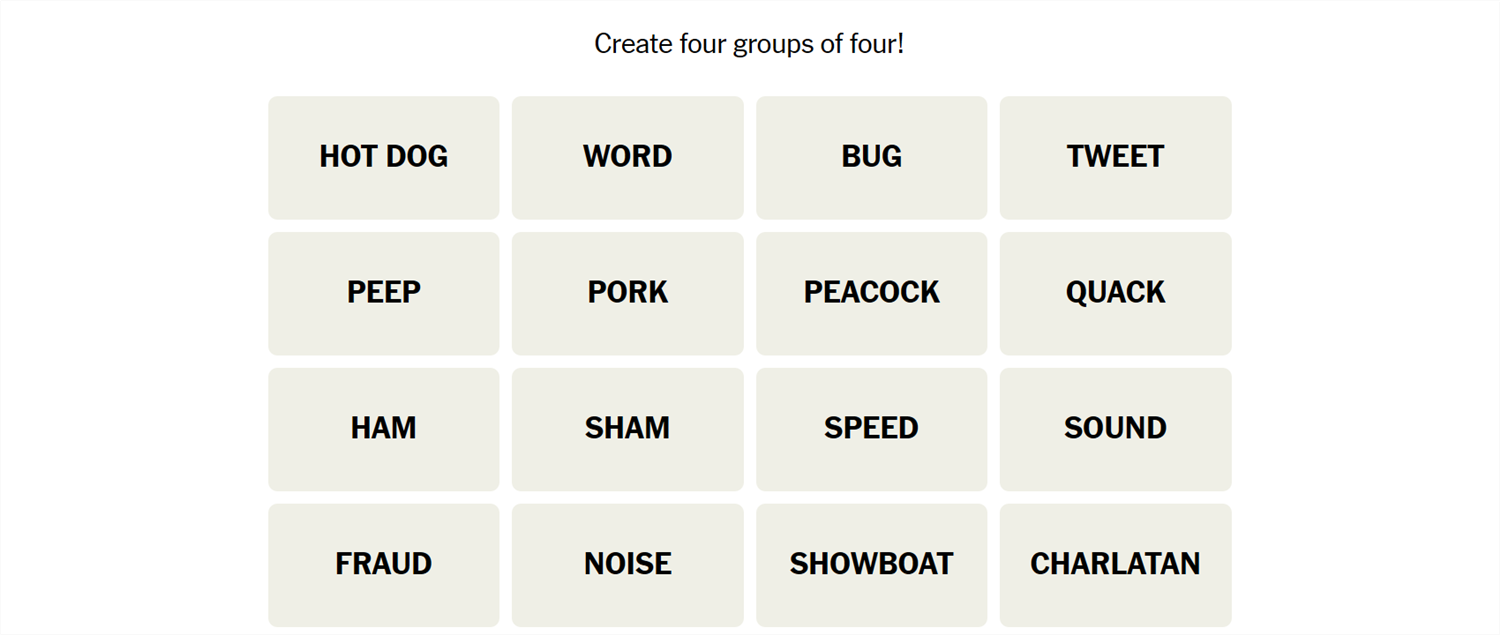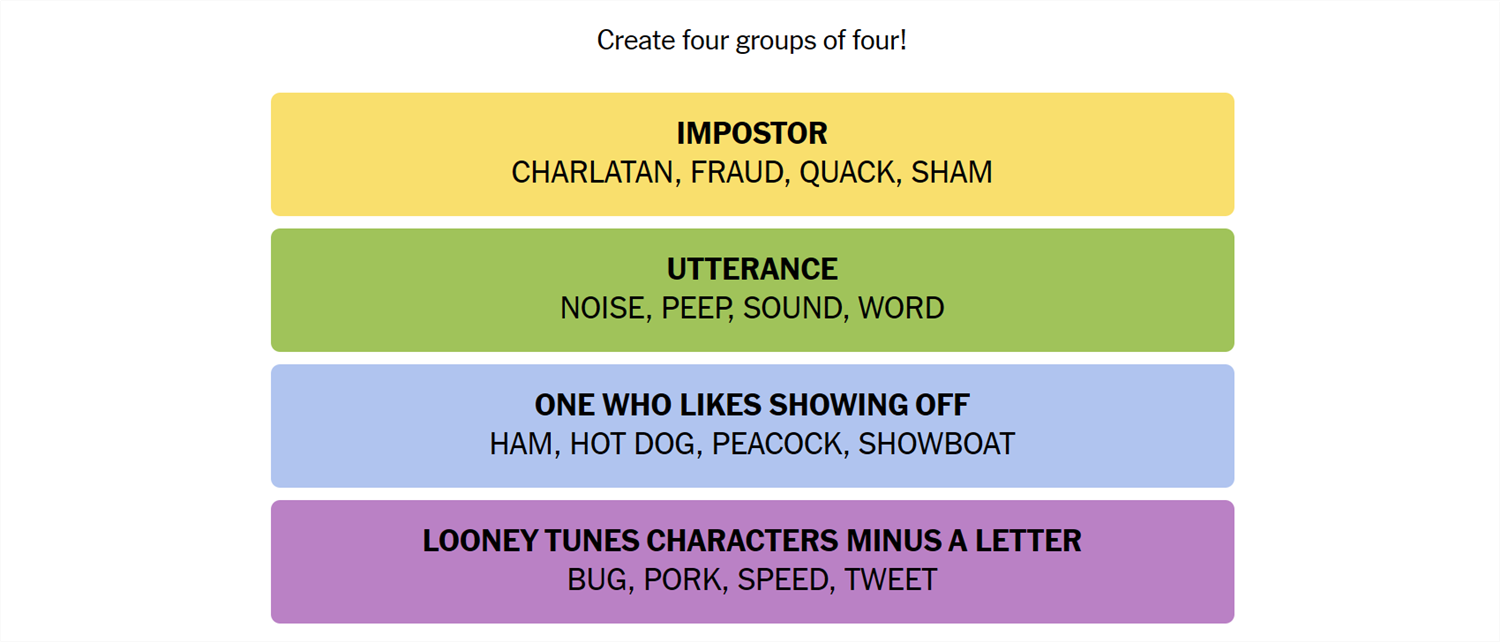
July 23Rd Insights & Answers From the New York Times: Exclusive Update #408

July 23Rd Insights & Answers From the New York Times: Exclusive Update #408
Quick Links
- What Is Connections?
- Hints for Today’s Connections Groups
- Today’s NYT Connections Answers
- How Did We Solve This Connections Game?
- How Do You Guess Connections Groups?
Connections is a game from the New York Times that challenges you to find the association between words. It sounds easy, but it isn’t—Connections categories can be almost anything, and they’re usually quite specific. If you need a hand getting the answers, we’ve got you covered.
What Is Connections?
Connections is a game from the New York Times. The objective is simple: sort 16 words into groups of 4. Each group of words will be connected by some common idea or theme. That common element could be anything. We have seen everything from games that rely on the number of letters in the words to categories that require you to spot an extra letter at the end of the word. Sometimes they’re references to economics, other times they reference fairy tales. There is no telling what sort of association there will be between words.
Once you’re confident you understand the connection, select 4 words, then hit “Submit.” You have only four attempts in total, so don’t be too guess-happy.
Hints for Today’s Connections Groups
Here are a few hints for the 408th Connections game to get you started:
- Yellow: When someone is a fake.
- Green: When someone speaks.
- Blue: Words that describe people who like being at the center of attention.
- Purple: Think classic cartoons.

If you still need help, the actual group names are:
- Yellow: Impostor
- Green: Utterance
- Blue: One Who Likes Showing Off
- Purple: Looney Tunes Characters Minus a Letter
Today’s NYT Connections Answers

Impostor (Yellow):
Charlatan, Fraud, Quack, Sham
Utterance (Green):
Noise, Peep, Sound, Word
One Who Likes Showing Off (Blue):
Ham, Hot Dog, Peacock, Showboat
Looney Tunes Characters Minus a Letter (Purple):
Bug, Pork, Speed, Tweet
How Did We Solve This Connections Game?
July 23rd wasn’t too bad, though I’m not sure how accurate Purple is.
The word I started with was charlatan, mostly because it has no competing or ambiguous definitions. It refers to someone who claims to have knowledge or ability beyond what they really do. In other words, a fraud, quack, or sham. Those 4 words—charlatan, fraud, quack, and sham, belonged to the Yellow group, which was “Impostor.”
Noise, peep, sound, and word are all auditory terms, and the only ones on the board besides tweet. Tweet and peep could both even be used in the context of bird noises, but the important bit seemed to be that peep could also be a human sound, and so can noise, sound, and word, whereas tweet can’t be. Noise, peep, sound, and word were in the Green group, “Utterance.”
A showboat is someone that likes to show off, and it can also be used a verb “showboating,” to mean the same thing. Ham, hot dog, and peacock can all be related to someone that likes to be the center of attention or show off, so it seemed likely they were in the same group. The Blue group was “One Who Likes Showing Off,” and included ham, hot dog, peacock, and showboat. The real question is: why are so these pig-associated food products synonyms for showing off?
That left bug, pork, speed, and tweet. I tried every usual trick to figure out the connection before finally giving up, only to learn that Purple was “Looney Tunes Characters Minus a Letter.” However, that sort of threw me off. They’re often called Bugs Bunny, Porky Pig, Speedy Gonzales, and Tweety Bird—and only two of them (Tweety and Bugs) are commonly called just the first word.
How Do You Guess Connections Groups?
There is no quick, reliable way to approach Connections like there is with Wordle, since Connections isn’t algorithmic. However, there are a few things to keep in mind that can help.
- Look for similar parts of speech. Are some words verbs and others nouns? Are some adjectives? Try mentally grouping them based on those categories and see if any other patterns jump out at you.
- Are the words synonyms? Sometimes categories will just be synonyms for a phrase, or very close to synonyms. Don’t rely too closely on this, though. Occasionally, Connections will deliberately throw in words that are sometimes synonyms to mislead you.
- Try saying the words. Sometimes, saying the words helps. One puzzle we saw included the words go, rate, faster, clip, pace, speed, move, commute, and hurry—all of which are obviously related to the idea of motion. However, when you say them, it becomes a little more obvious that only four (go, move, hurry, faster) are things you’d actually say to prompt someone to get moving.
- Expect the red herring . Connections usually has words that could be plausibly, yet incorrectly, grouped together. Take the words Bud, Corona, and Light, as an example. You might instinctively see those three words together and assume they’re lumped together in a category related to beer—but they weren’t.
- Look for distinct words. If a word on your board doesn’t have multiple meanings or can really only be used in one context, try using that word as the basis for a category.
- Shuffle the board. Sometimes, moving words around will help you look at them in new ways.
If you didn’t solve this one, don’t feel too bad—there’s always tomorrow! And those words may align with a topic you’re interested in, giving you a leg up on the competition.
Also read:
- [New] 2024 Approved From Shots to Screens The Importance of Camera Lenses in Vlogs
- [New] 2024 Approved From Unconfident to Impactful Embracing YouTube Blogging
- [New] Free DIY Approaches to Design Your Own YouTube Cards for 2024
- [New] Free Video Embedding Techniques for Online Articles for 2024
- [Updated] 2024 Approved How to Get More Subscribers on YouTube
- [Updated] 2024 Approved How To Remove Background Noise From Your Youtube Video
- [Updated] FREE Online Services for YouTube Images Extraction for 2024
- [Updated] Fundamental Techniques From Video Links to Downloaded Audios
- Beyond Clicks & Points: Exploring How Generative Artificial Intelligence Is Revolutionizing User Interface Design | Featured on ZDNET
- How To Leave a Life360 Group On Realme C67 4G Without Anyone Knowing? | Dr.fone
- In 2024, Leveraging HDTV for FB Videos Playback
- In 2024, One-Minute Mastery of Fades
- Perfect Compatibility: Installing Laptop Drivers on Your Lenovo Legion 5 Pro-16ACCH6
- Troubleshooting Win11 Audio via New Driver Installation
- Updated 2024 Approved Cut, Trim, and Polish The Best Free Online Video Editors
- Title: July 23Rd Insights & Answers From the New York Times: Exclusive Update #408
- Author: Jeffrey
- Created at : 2024-11-14 20:53:29
- Updated at : 2024-11-19 21:45:27
- Link: https://eaxpv-info.techidaily.com/july-23rd-insights-and-answers-from-the-new-york-times-exclusive-update-408/
- License: This work is licensed under CC BY-NC-SA 4.0.